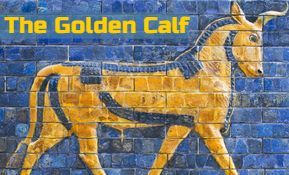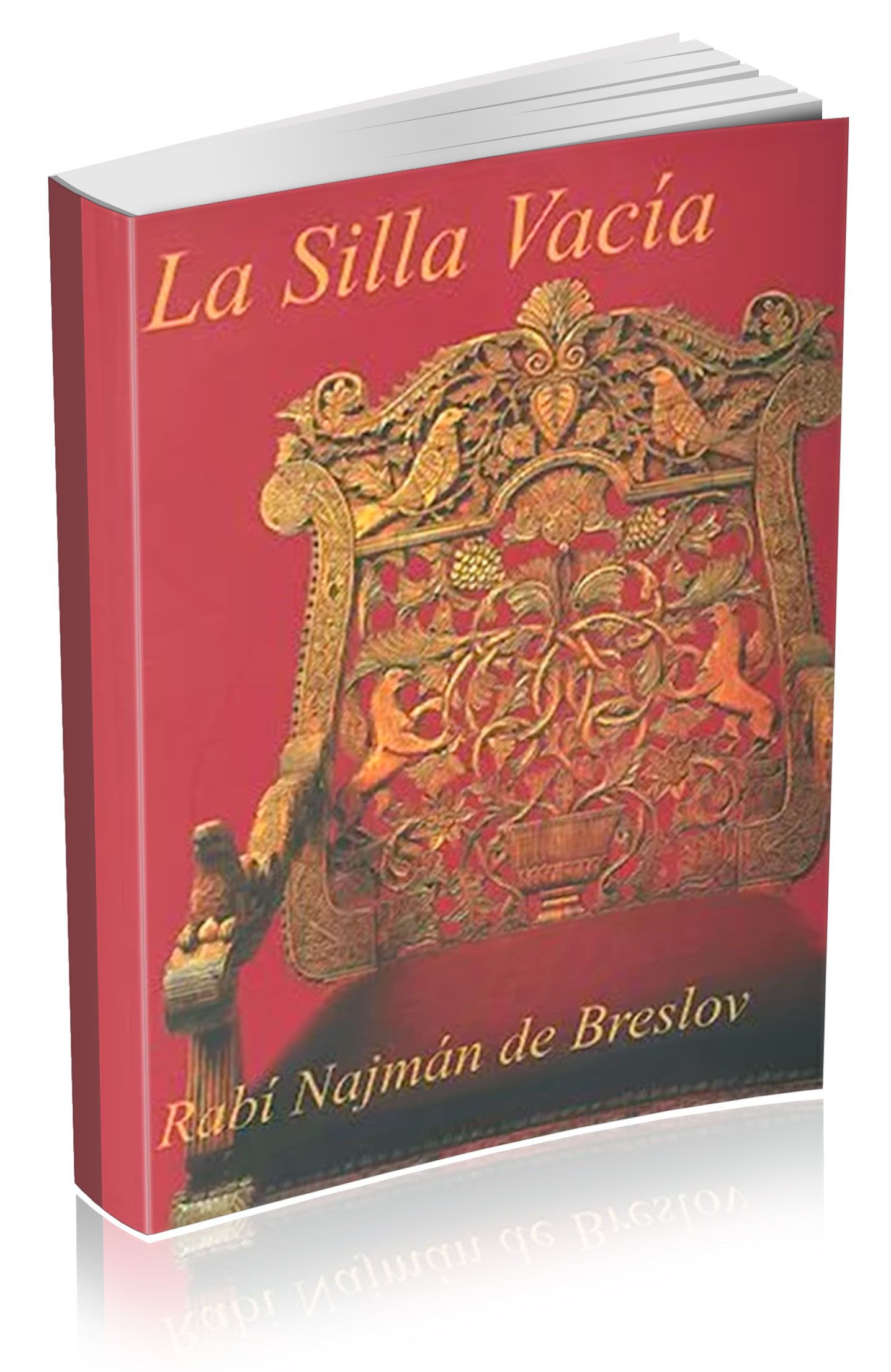
Balak: Bilaam’s Hypocrisy
How did having a prophet such as Bilaam alleviate the nations’ complaint? After all, they could still claim that if God had given...

Inside and Out
In His wisdom, God decreed that the gentile nations have a prophet comparable to Moshe (Moses), so that they would not be able to argue that had they had someone to communicate to them the will of God, they would have been as righteous as Israel. Bilaam (Balaam) was that prophet.
Bilaam, however, was the quintessential model of bad character traits, as the Sages said: “Whoever possesses the following three traits is of the disciples of our father Avraham (Abraham); and whoever possesses the opposite three traits is of the disciples of the wicked Bilaam. The disciples of our father Avraham have a good eye, a meek spirit and a humble soul. The disciples of the wicked Bilaam have an evil eye, a haughty spirit and a gross soul” (Avot 5:19).
How did having a prophet such as Bilaam alleviate the nations’ complaint? After all, they could still claim that if God had given them a prophet as righteous as Moshe they would have been as righteous as Israel.
Furthermore, how could such a wicked person as Bilaam attain the level of prophecy? The Rambam lists the prerequisites for achieving prophecy: “…prophetic visions [are] granted only to very wise people with outstanding characteristics, whose inclinations never lead them to earthly matters but who always conquer their inclinations, and who are of correct temperaments” (Hilchot Yosodei HaTorah 1:1). Bilaam was anything but "exceedingly wise," nor did he have "outstanding characteristics" and his inclination led him only to earthly matters! How could the wicked Bilaam have achieved prophecy?
Let’s take a look at how people generally relate to wisdom. A tale is told about the greatest of the great Greek philosophers, Aristotle. Discovered in a house of ill repute he was asked how the great Aristotle could be found in such a place. His answer: “When I am here I am not Aristotle!”
Similarly, Bertrand Russell, one of the famous philosophers of the 20th century, was involved in immoral affair when he was Professor of Philosophy in City College in New York. Called before the NY Board of Higher Education, he defended himself with the following statement: “You have accused me of immoral conduct that is unseemly for a Professor of Ethics and Philosophy. Well you should know; when I was a Professor of Mathematics in Cambridge University I didn’t have to be a triangle!”
Wisdom and philosophy do not exist in some kind of ivory tower, unconnected to our lives. This is the antithesis of the Torah. The Torah ideal is that we should be tocho k’boro; our outsides should be as our insides.
Nevertheless, the nations of the world desired prophecy without the attendant character perfection. They felt they could be as righteous as Israel if only they would have prophetic visions. Therefore, God gave prophecy to Bilaam, even though it was against the ‘rules’ as delineated by the Rambam. Bilaam made no effort to improve his character, exactly as the nations wanted. They claimed the gift of prophecy alone would cause them to become righteous.
Predictably, Bilaam did not use his gift of prophecy to bring the nations closer to God; instead, he used it to rebel against God by attempting to curse God’s people.
What went wrong?
Contending With Desires
Rabbi Simcha Zissel, the Alter of Kelm, explains that a person’s desires cannot distinguish between good and evil. Only through using our intellect can we stop ourselves from doing evil. If we do not train ourselves to think, our minds become atrophied, like an unused muscle or limb.
This is far from easy. It involves constant introspection. We must think before we do, and decide never to be lax. If we are not vigilant, we can easily make a mistake.
Although Bilaam was extremely intelligent and was granted the gift of prophecy, he fell victim to his coarse desires, and erred in something that any simple individual could understand.
“God came to Bilaam and said, ‘Who are these men with you?’” (Bamidbar 22:9). Rashi explains: “It came to delude him.”
[Rashi means: ‘The ways of Hashem are straight, and the righteous shall walk in them, and the rebellious shall stumble on them’ (Hosea 14:10). By asking, ‘Who are these men with you,’ God meant to enter into a conversation with him, as Rashi states in the Bereishit (3:9) on the word, ‘Where are you?’ But it came to Bilaam to delude him, for he erred.]
“He [Bilaam] said, ‘Sometimes, not everything is revealed before Him, for He is not always omniscient. I will find a time when I am able to curse, and He will not realize it.’”
How could the greatest prophet of the nations make such a gross blunder? After all, even a child could see that it was ridiculous! God is always omniscient, so why didn’t Bilaam realize that?
The answer is that wisdom does not dwell in a wicked heart. Bilaam’s intellect, as great as it was, had no real affect on his desires and emotions. As a result, he could entertain thoughts that the simplest person would find absurd, as long as they served to help him fulfill his desires.
He wanted the “house full of gold and silver” (Ibid. 18) that Balak promised, and nothing was going to stand in his way, not even a talking donkey!
“Hashem opened the mouth of the she-donkey, and it said to Bilaam, ‘What have I done to you that you have struck me these three times?’ Bilaam said to the she-donkey, ‘For you have humiliated me; if I had a sword in my hand, I would kill you right now’” (Ibid. 28-29).
Normally the miracle of a talking donkey ought to give one moment to pause: “Hey! What is going on here?” Bilaam, however, ignored the significance of that miraculous event and treated it as yet another pesky obstacle that was getting in the way of his desires!
The Solution
How can we maintain our objectivity and not blindly follow our desires to ruination? The answer: through weakening our desires and activating our intellect. This involves three steps:
1) Learn to think deeply and develop the intellect.
2) Develop good character traits.
3) Bring your intellect to an emotional level.
Bilaam understood the connection between good character traits and wisdom, as we see in the works of the ancient philosophers. But he failed to bring this knowledge of truth and reality into his heart.
It states in the Torah: “And you shall know this day and take to your heart, that Hashem is God in heaven above, and upon the earth below; there is none else” (Devarim 4:39).
“And you shall know” – this is step one – learning to think deeply and to develop our intellect, which includes all the good character traits (step two), because without good character one will never come to the truth. “And take to your heart” – this is step three, bringing our intellectual knowledge into our emotions.
Bilaam’s discord between heart and mind helps us to understand another glaring contradiction in his behavior. On one hand, he was concerned about his station in the World to Come, as he said: “May my soul die the death of the upright and let my end be like his” (Bamidbar 23:10).
On other hand, he said to Balak, the enemy of the Children of Israel: “Come, I will advise you…” (Ibid. 24:14). Rashi explains: “Come, I will advise you what action you should take. What is that counsel? ‘The God of these [people] hates immorality [thus, entice them to sin with your women…] as it is related in the chapter of Cheilek (Sanhedrin 106a). The proof that Balaam offered this counsel in order to cause them to stumble through immorality is that it says, ‘They were the ones who were involved with the Children of Israel on Bilaam’s advice’ (Bamidbar 31:16).”
On one hand, Bilaam was concerned with his portion in the World to Come, yet he ignored the fact that the Creator can bring retribution for seeking to harm His people! And in the end, Bilaam suffered the most ignoble of defeats.
Bilaam’s did not take his beliefs to heart. His great philosophical breadth did not help him as long as his heart remained evil. Such a heart resists cooperation with the intellect; wisdom will never dwell within it. He resembled a mindless beast that only knows how to pursue its desires. (Rabbi Simcha Zissel of Kelm, Chachmah U’Mussar).
As Jews, we are continuously learning new concepts and inspiring, lofty ideas. Our primary task is to do our utmost to bring these ideals into our daily conduct, so that our behavior reflects the beauty and depth of our Torah study.
This takes plenty of work! That means studying works of Mussar and Chassidut, turning to Hashem in prayer and spending time in Hitbodedut to bring these lofty ideals into our hearts. That is the way to avoid the unseemly hypocrisy of philosophically inclined ‘intellectuals’ such as Bilaam.












6/29/2009
would like to be in contact with Rabbi Schallheim bs”d
I learned with Rabbi Schallheim about ten years ago at Aish haTorah Yeshiva in Yerushalayim. I’m from Los Angeles, and we lost contact over the years. I would like a way of re-contacting him.
kol tov
6/29/2009
bs”d
I learned with Rabbi Schallheim about ten years ago at Aish haTorah Yeshiva in Yerushalayim. I’m from Los Angeles, and we lost contact over the years. I would like a way of re-contacting him.
kol tov